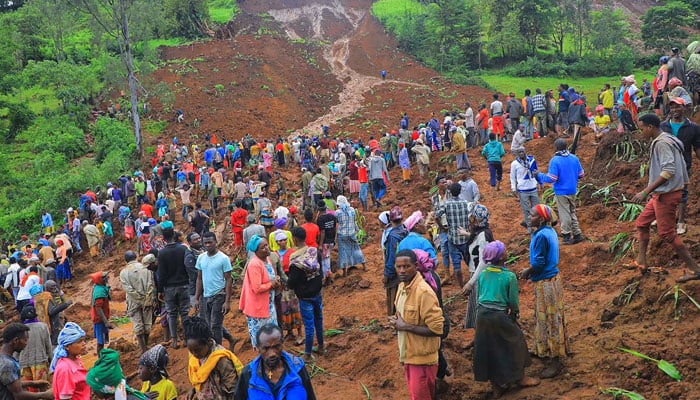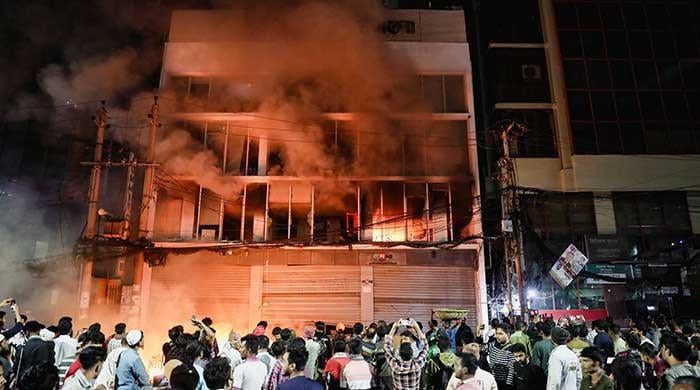At least 229 killed in landslides in south-western Ethiopia
Many who died were from rescue team that had been searching for survivors in previous landslide
July 24, 2024

Over 229 people have been buried alive by collapsar-like mudslides triggered by torrential rain in the south-western Ethiopia, the worst in this type of disaster ever to be reported in the Horn of Africa country, BBC reported.
On Tuesday, the authorities of Kencho Shacha Gozdi said that the fatalities might rise. Residents attempt to dig through the debris with shovels and bare hands in an attempt to find survivors and save them.
Many of the people who died were from the search and rescue team that had been searching for survivors in a previous mud slide that happened on Sunday night. A large number of people are still unaccounted for, as stated by Mr. Markos Melese, Director of Disaster, Agency, Gofa Zone.
“There are children who are hugging corpses, having lost their entire family, including mother, father, brother and sister, due to the accident,” he told the Associated Press.
There are images by the Gofa Zone authority posted on Facebook showing people standing on red earth some of them using their hands to make a pile on the ground looking for the survivors. Moussa Faki Mahamat, chairperson of the African Union Commission, expressed his condolences: “Our hearts and prayers are with the families [of the victims].” Gofa Zone is located in the South Ethiopia regional state and is categorised as a zone with mostly mountains.
The United Nations Office for the Coordination of Humanitarian Affairs reported that the region experienced major flooding, infrastructural destruction and the displacement of more than a thousand people due to heavy rains between April and May, usually the season of rains.
In 2016, 41 people became the victims of a mudslide that occurred after a severe rain in Wolaita; another region in southern Ethiopia. Therefore, countries in Ethiopia and other eastern African states are increasingly vulnerable to the climate change impacts which affect the calendar season as well as the duration of the dry and wet periods.
The southern and eastern parts of Ethiopia were hit in November’s heavy rain that caused the death of dozens and displaced hundreds of thousands.









